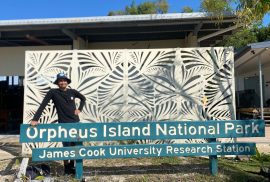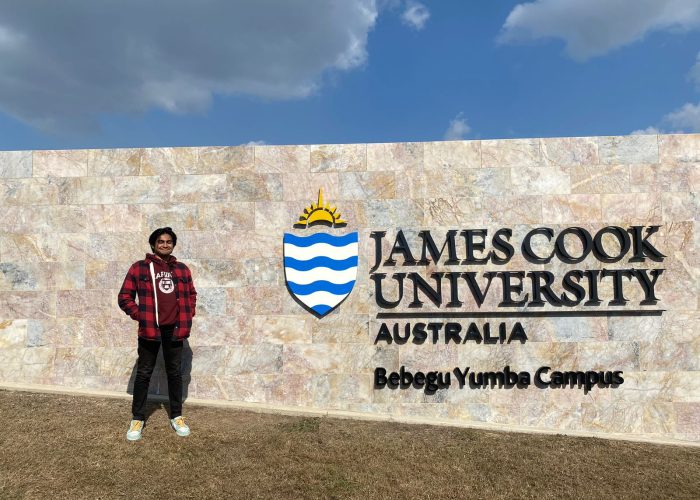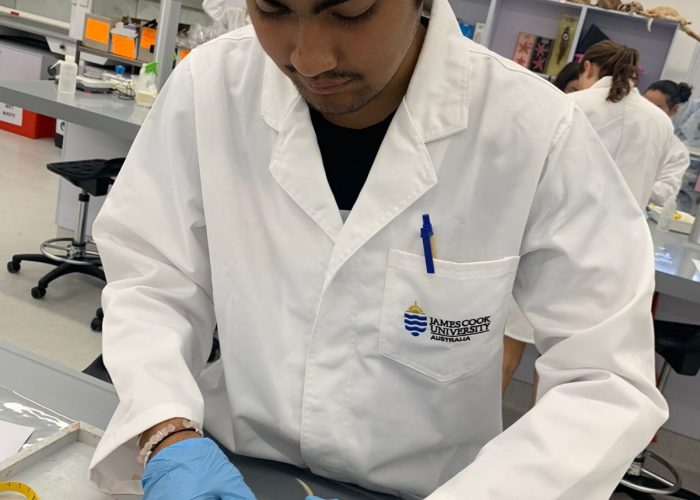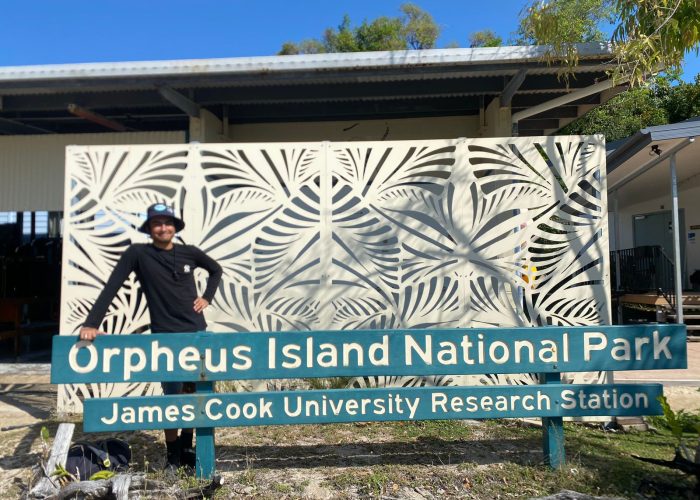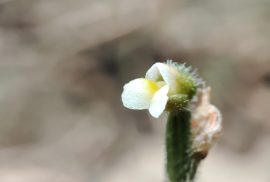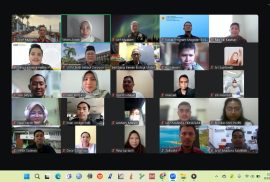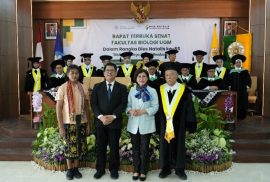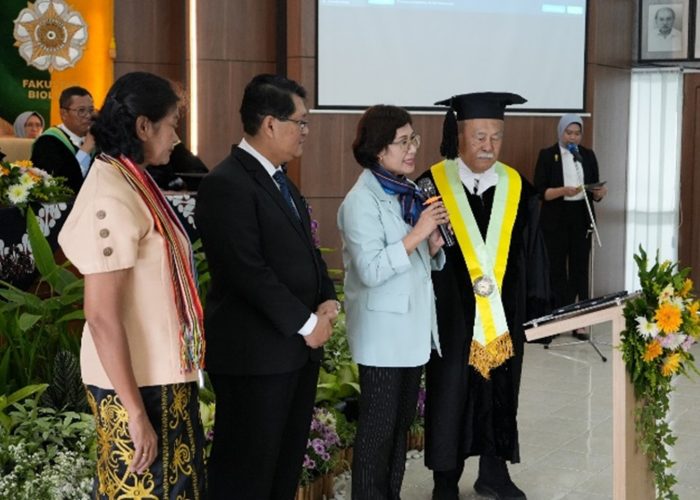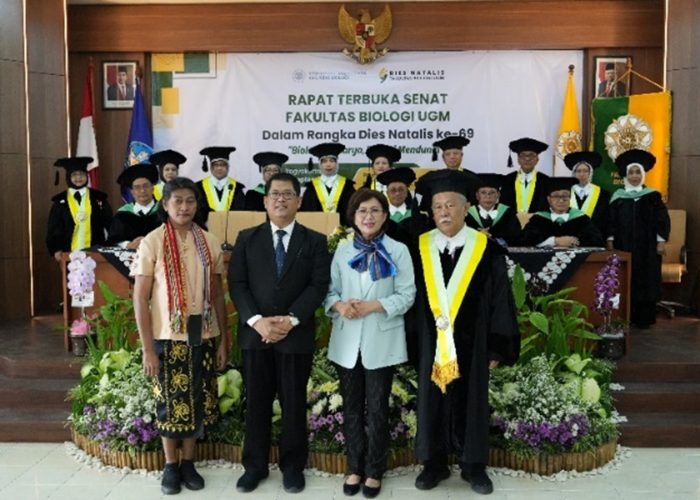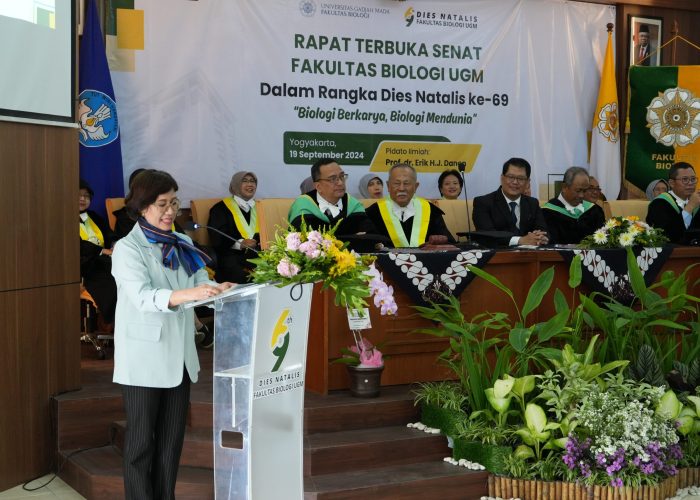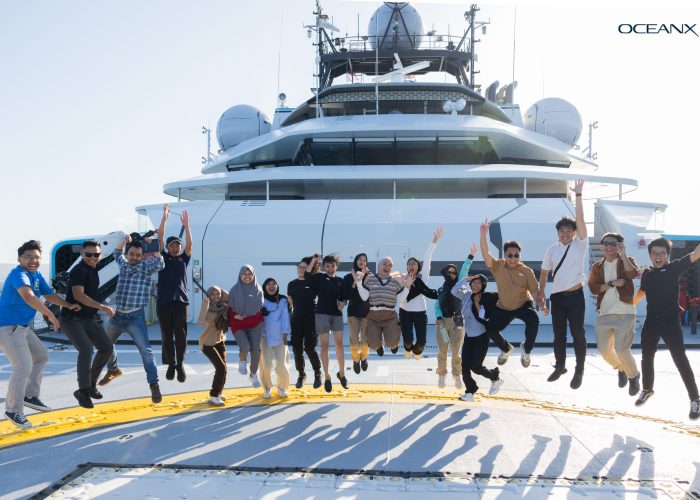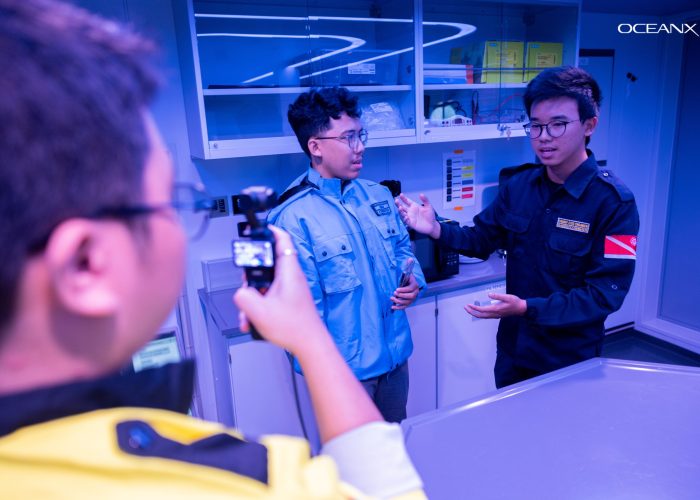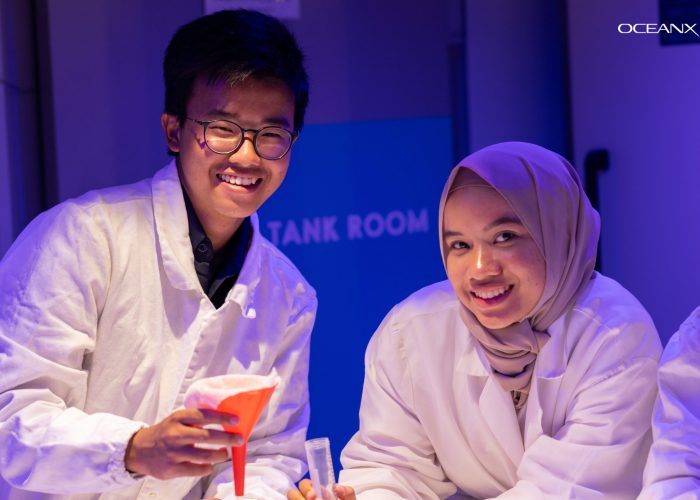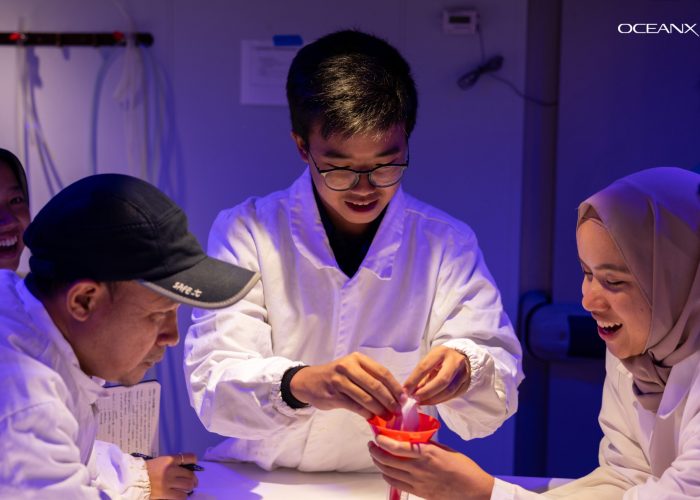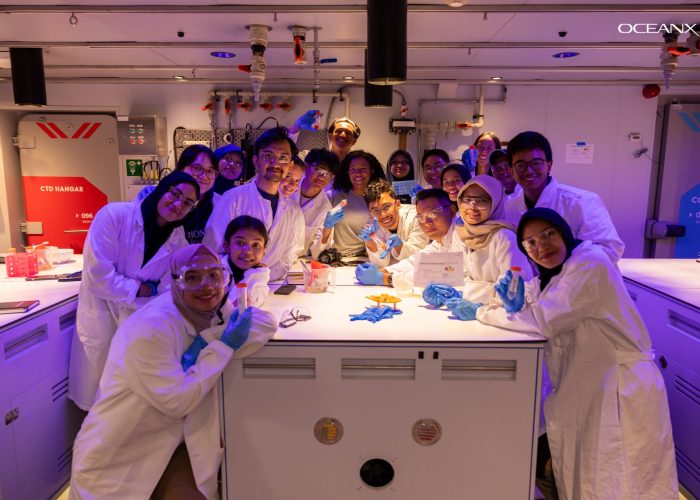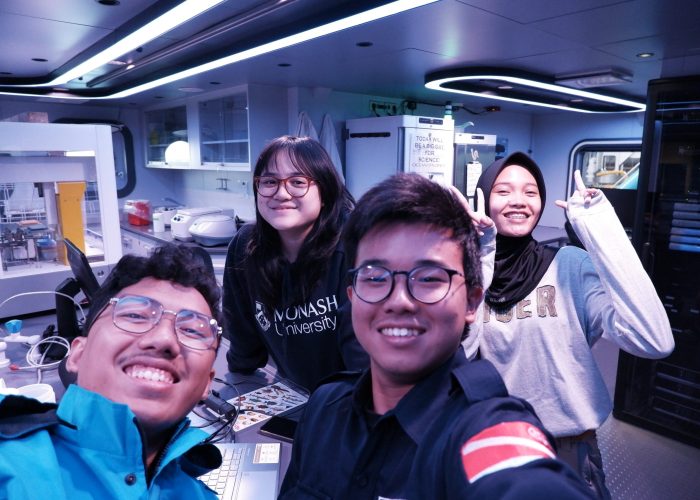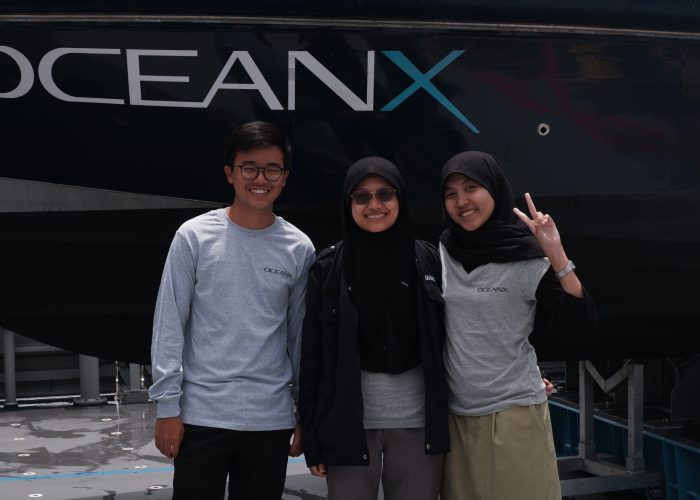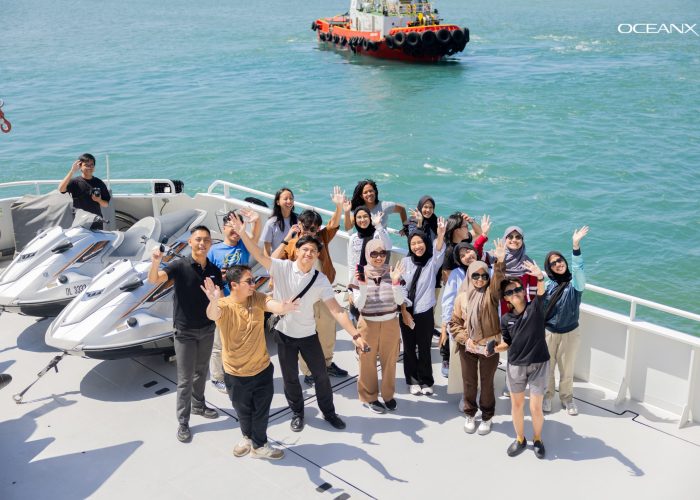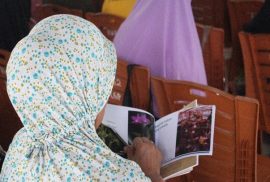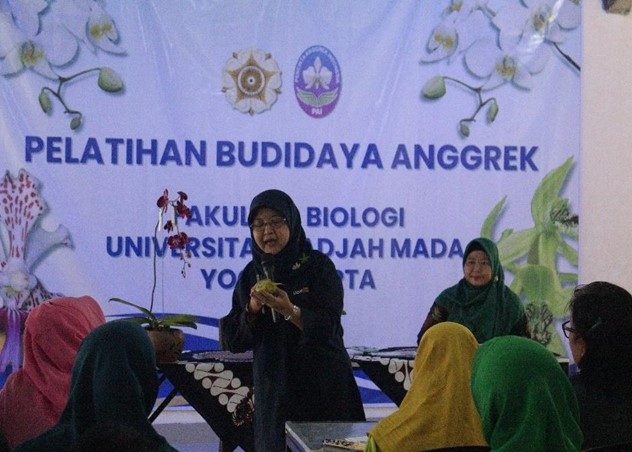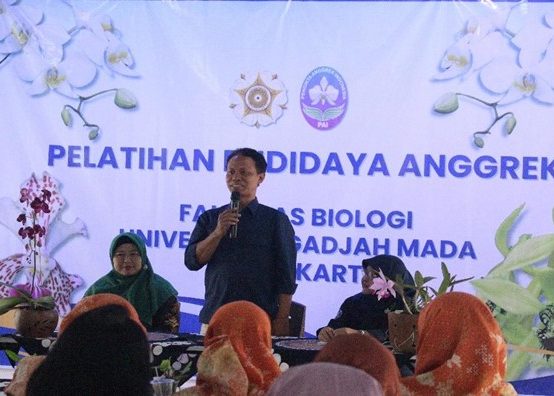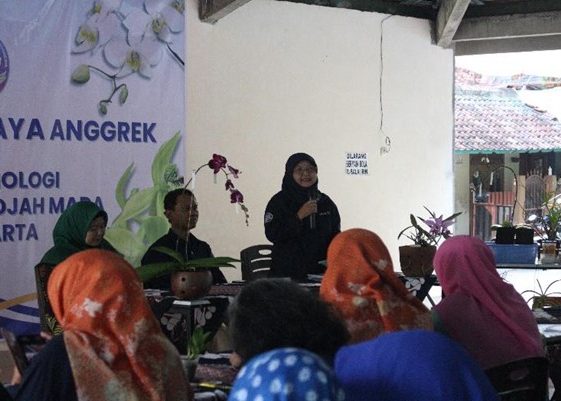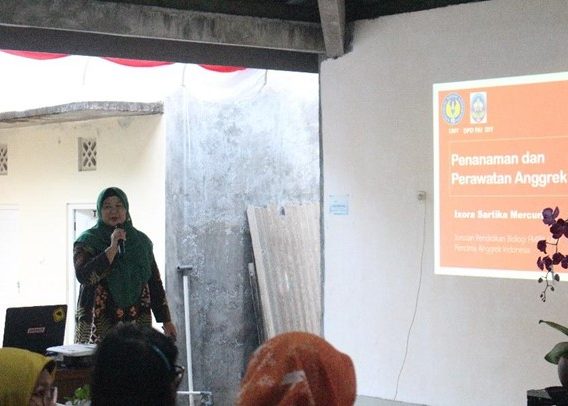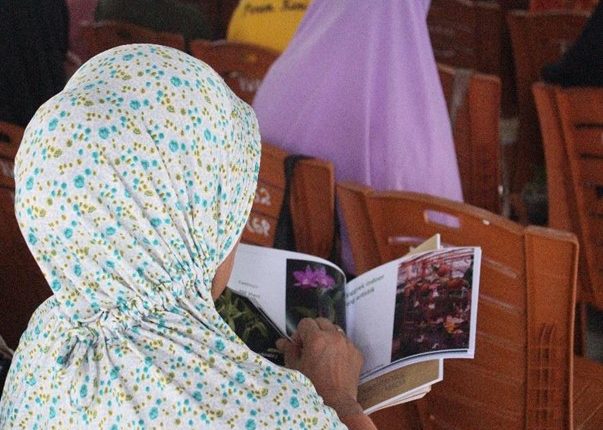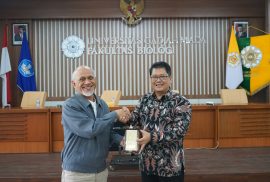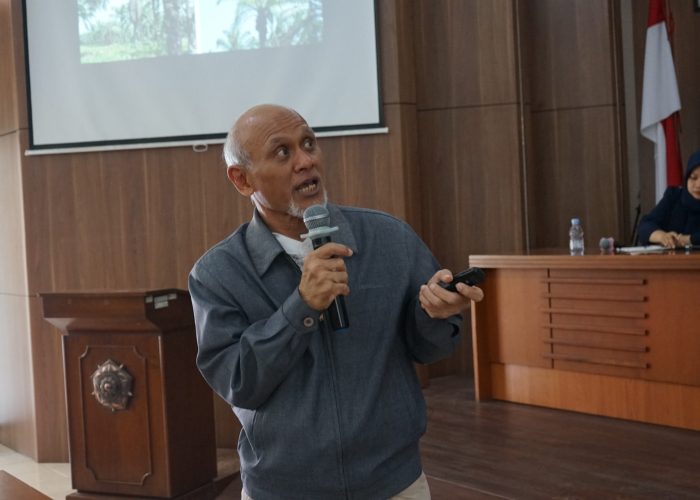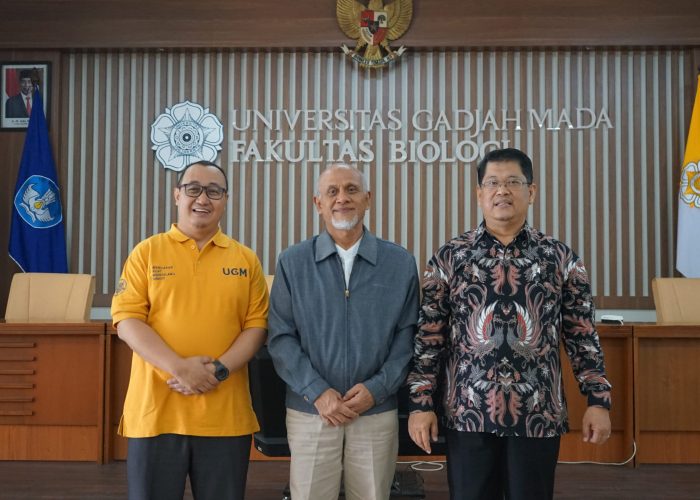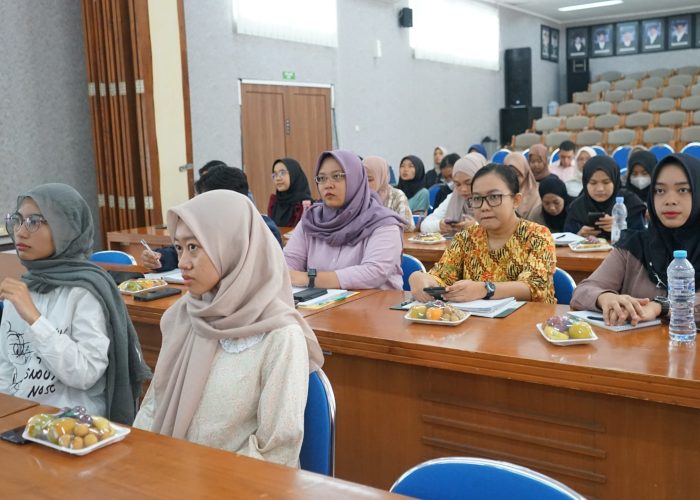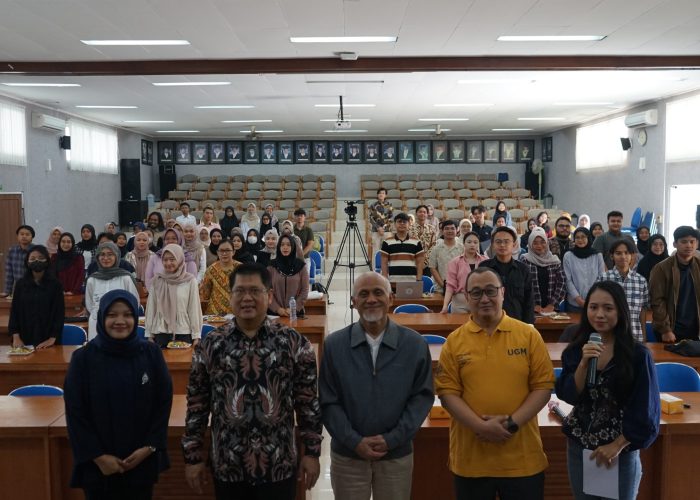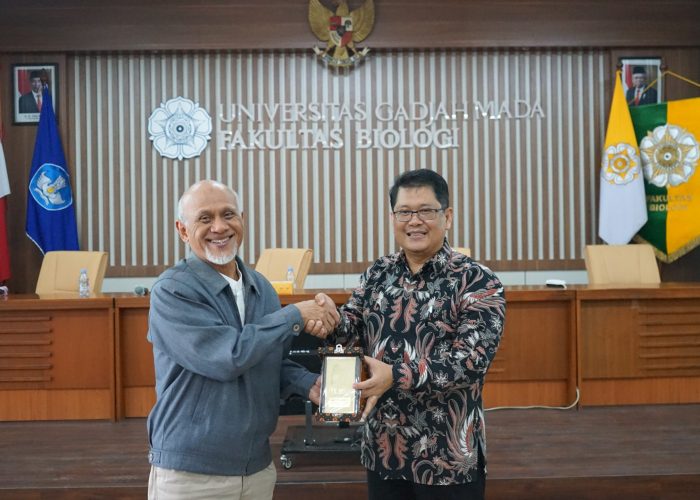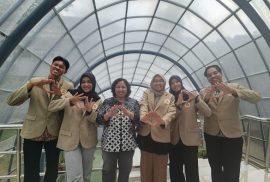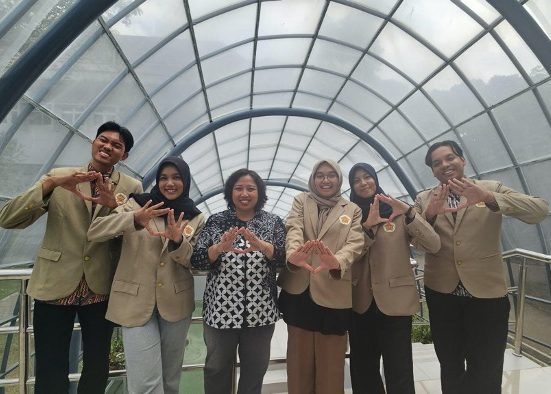Arsip:
and Infrastructure
Wildan Fadhilah Kurnia, a 2021 cohort student in the International Undergraduate Program (IUP) of the Faculty of Biology at Universitas Gadjah Mada (UGM), has been participating in a prestigious six-month student mobility program at James Cook University (JCU), Australia. This program is designed to offer students invaluable international experience and the opportunity to study at one of the world’s leading universities in Marine Biology.
Wildan has found his experience at JCU to be exceptional. “The research conducted here is renowned globally in various fields, particularly marine biology, aquaculture, and paleontology,” he remarked. Enrolled in courses from the faculties of Marine Biology, Aquaculture, and Earth and Environmental Sciences, he is impressed by JCU’s state-of-the-art research facilities and highly interactive classes that foster critical thinking.
Wildan’s curriculum has provided him with direct fieldwork opportunities, allowing him to engage closely with the subject matter. He spent time at the Flinders River, searching for fossils and studying the stratigraphy of geological formations. Additionally, he visited several aquaculture facilities, gaining firsthand insights into the diverse species cultivated within the industry.
A highlight of his program was a visit to JCU’s Orpheus Island Research Station, where he participated in hands-on analysis of coral reefs surrounding the island. “Each course presents its own challenges, but I have thoroughly enjoyed my studies here and have learned so much,” Wildan said.
In addition to his coursework, Wildan is collaborating with Dr. Espen Knutsen, Senior Scientist and Curator of Paleontology at the Queensland Museum in Townsville, to further his ongoing research on fossils found in underwater caves. Wildan hopes to apply the knowledge and insights he has gained in his future endeavors. [Aulia]
Wildan Fadhilah Kurnia Embarks on Transformative Semester Abroad at James Cook University, Australia
Wildan Fadhilah Kurnia, a dedicated student from IUP batch 2021, Faculty of Biology, Universitas Gadjah Mada (UGM), has joined a prestigious six-month student mobility program at James Cook University (JCU) in Australia. This program is designed to provide students with invaluable international experience and the opportunity to study at one of the world’s leading universities in Marine Biology.
So far, Wildan has found his experience at JCU to be nothing short of exceptional. “The research conducted here is renowned globally across various fields, particularly marine biology, aquaculture, and paleontology,” he shared. Enrolled in courses from the Marine Biology, Aquaculture, and Earth and Environmental Sciences faculties, he has been impressed by JCU’s top-of-the-line research facilities and highly interactive classes that encourage critical thinking.
Wildan’s curriculum has provided him with hands-on fieldwork opportunities, allowing him to engage directly with the subject matter. He spent time at the Flinders River Formation, searching for fossils and studying the stratigraphy of geological formations. Additionally, he visited various aquaculture facilities, gaining firsthand insight into the day-to-day operations and the diverse species cultivated within the industry.
A highlight of his program has been a visit to JCU’s Orpheus Island Research Station, where he participated in real-time analysis of the coral reefs surrounding the island. “Each subject has its challenges, but I’ve thoroughly enjoyed my studies here and have learned a tremendous amount,” Wildan noted.
In addition to his coursework, Wildan is collaborating with Dr. Espen Knutsen, Senior Scientist and Curator of Paleontology at the Queensland Museum in Townsville, to further his ongoing thesis on fossils discovered in underwater caves.
In addition to his coursework, Wildan is collaborating with Dr. Espen Knutsen, Senior Scientist and Curator of Paleontology at the Queensland Museum in Townsville, to further his ongoing thesis on fossils discovered in underwater caves.
Wildan’s journey exemplifies the transformative power of international education and research collaboration. He looks forward to applying his experiences and insights to his future endeavors. [Aulia]
On September 21, 2024, the Conservation Division of the Biology Orchid Study Club (BiOSC) Universitas Gadjah Mada conducted an exploration activity at Curug Siluwok. This regular activity acted as a foundational step in the conservation of native orchid species.
Curug Siluwok was selected as the exploration site due to its status as a prominent ecotourism destination in the Special Region of Yogyakarta. The prevalence of orchid species in this area is particularly susceptible to disturbances from tourist activities. The exploration involved ten active members of BiOSC and aimed to document the native orchid species in Curug Siluwok, thereby augmenting the biodiversity database of orchids in the Special Region of Yogyakarta, particularly within the Menoreh Highland.
The exploration commenced with a comprehensive briefing session in the morning to prepare participants for field activities and assign specific responsibilities. Subsequently, the team embarked on a journey to the exploration site, which took approximately one hour. Upon arrival at Curug Siluwok at 09:00, participants collected data on orchids in Curug Siluwok, including morphological characteristics, the enumeration of individual orchids encountered, geographic coordinates of each orchid’s location, and environmental parameters. The investigation resulted in the identification of 11 orchid species at the Curug Siluwok site, including Vanilla planifolia Andrews, Dendrobium crumenatum Sw., Bryobrium retusum (Blume) Ng & Cribb, Acriopsis lilifolia (Koenig) Ormerod, Rhynchostylis retusa (L.) Blume, Aerides odorata Lour., Liparis condylobulbon Rchb.f., Zeuxine clandestina Blume, Spathoglottis plicata Blume, Malaxis sp., and Thrixspermum sp. The data will contribute to the conservation records of native orchids and enhance our understanding of orchid biodiversity within the Special Region of Yogyakarta, particularly in the Menoreh Highland.
It is hoped that the regular exploratory activities will enrich the existing knowledge base concerning the distribution of various orchid species in the Menoreh Highland, specifically at Curug Siluwok, thus supporting the conservation of orchid species within the Special Region of Yogyakarta. Following this exploration, the Conservation Division will implement ongoing monitoring in the Curug Siluwok area to ensure the continued growth and sustainability of the native orchid populations.
Yogyakarta, 18 September 2024 – The Faculty of Biology Universitas Gadjah Mada (UGM) held a guest lecture as part of the Graduate Program orientation for the 2024/2025 academic year. The guest lecture titled “Population Biology, Biological Control, and Conservation” was conducted online via Zoom from 3:30 to 5:00 PM WIB, and attended by 56 graduate students. The event aims to provide essential insights to new graduate students and is held twice a year.
This semester’s guest lecture featured Prof. Dr. Bambang Irawan, M.Sc. as speaker, a prominent biologist from Universitas Airlangga and an alumnus of UGM’s Faculty of Biology. Prof. Irawan is a noted expert in population biology and biological control. During his undergraduate years at UGM, he earned the honorary title Glericidae, reflecting his academic achievements and focus on reptilian studies. The session was opened by Wiwin Ariesti, S.Si., as the Master of Ceremony, and moderated by Nurul Hidayah, S.Pd. It began with the singing of “Indonesia Raya,” UGM’s “Hymne Gadjah Mada,” and the Faculty of Biology March. The Dean of the Faculty of Biology, Prof. Dr. Budi Setiadi Daryono, M.Agr.Sc., delivered the opening remarks, underscoring the importance of population biology in addressing pressing global ecological challenges.
The main lecture, “Population Biology, Biological Control, and Conservation”, began at 4:00 PM with an engaging reflection by Prof. Irawan on his experiences as a UGM undergraduate. He transitioned into a thorough scientific discussion on the role of population biology in ecological research and conservation. Prof. Irawan delivered an overview of population biology, the distinction between population ecology and genetic population dynamics, population parameters, population equilibrium, and the role of population biology in biological control.
Throughout the lecture, Prof. Irawan emphasized the interdisciplinary relevance of population biology, linking it to broader fields such as sociology, economics, demography, and politics. He also shared practical examples from his research, illustrating methods for pest management and conservation, from traditional approaches to more advanced techniques.
The lecture concluded with an interactive question-and-answer session, where students engaged with Prof. Irawan on various aspects of population biology. His ability to connect theoretical concepts with real-world applications fostered a lively and informative discussion. After approximately 45 minutes of in-depth material, the session ended with closing remarks by the moderator, followed by a formal close from the MC.
This guest lecture marked a successful orientation event for new graduate students at UGM’s Faculty of Biology, broadening their understanding of population biology, biological control, and conservation.
Yogyakarta, 18 September 2024 – The Faculty of Biology Universitas Gadjah Mada (UGM) held a guest lecture as part of the Graduate Program orientation for the 2024/2025 academic year. The guest lecture titled “Population Biology, Biological Control, and Conservation” was conducted online via Zoom from 3:30 to 5:00 PM WIB, and attended by 56 graduate students. The event aims to provide essential insights to new graduate students and is held twice a year.
This semester’s guest lecture featured Prof. Dr. Bambang Irawan, M.Sc. as speaker, a prominent biologist from Universitas Airlangga and an alumnus of UGM’s Faculty of Biology. Prof. Irawan is a noted expert in population biology and biological control. During his undergraduate years at UGM, he earned the honorary title Glericidae, reflecting his academic achievements and focus on reptilian studies. The session was opened by Wiwin Ariesti, S.Si., as the Master of Ceremony, and moderated by Nurul Hidayah, S.Pd. It began with the singing of “Indonesia Raya,” UGM’s “Hymne Gadjah Mada,” and the Faculty of Biology March. The Dean of the Faculty of Biology, Prof. Dr. Budi Setiadi Daryono, M.Agr.Sc., delivered the opening remarks, underscoring the importance of population biology in addressing pressing global ecological challenges.
The main lecture, “Population Biology, Biological Control, and Conservation”, began at 4:00 PM with an engaging reflection by Prof. Irawan on his experiences as a UGM undergraduate. He transitioned into a thorough scientific discussion on the role of population biology in ecological research and conservation. Prof. Irawan delivered an overview of population biology, the distinction between population ecology and genetic population dynamics, population parameters, population equilibrium, and the role of population biology in biological control.
Throughout the lecture, Prof. Irawan emphasized the interdisciplinary relevance of population biology, linking it to broader fields such as sociology, economics, demography, and politics. He also shared practical examples from his research, illustrating methods for pest management and conservation, from traditional approaches to more advanced techniques.
The lecture concluded with an interactive question-and-answer session, where students engaged with Prof. Irawan on various aspects of population biology. His ability to connect theoretical concepts with real-world applications fostered a lively and informative discussion. After approximately 45 minutes of in-depth material, the session ended with closing remarks by the moderator, followed by a formal close from the MC.
This guest lecture marked a successful orientation event for new graduate students at UGM’s Faculty of Biology, broadening their understanding of population biology, biological control, and conservation.
To mark its 69th Anniversary, the Faculty of Biology Universitas Gadjah Mada (UGM) has launched the Integrated Genome Factory (IGF), a facility designed for advanced multi-omics research. The launch occurred during the Open Senate Meeting, themed “Biology in Action, Biology Goes Global,” on September 19, 2024, at the Tropical Biology Auditorium. The IGF was inaugurated by UGM Rector, Prof. dr. Ova Emilia, M.Med.Ed., Sp.OG(K)., Ph.D., symbolized to begin DNA sequencing using Oxford Nanopore Technology (ONT).
The IGF is equipped with the ONT PromethION 24, capable of sequencing up to 720 Gb of DNA per day, supported by a Data Acquisition Unit (DAU) with powerful quad Nvidia A100 GPUs and a 160-core CPU for efficient data processing. The facility also features automated systems like the Opentrons Flex and automated DNA extraction, which streamline high-precision library preparation for large-scale research.
This facility was established with funding from Panin Bank, managed by the Satriabudi Dharma Setia Foundation (YSDS), and through support from the Inter-University Center for Excellence (IUCfE) program of the Directorate General of Higher Education (DIKTI). IGF aims to position UGM as a leader in ONT sequencing and multi-omics research in Indonesia. It is also supported as a biotech start-up by UGM’s Innovative Academy, allowing further development and expansion.
The Faculty of Biology UGM is committed to utilizing and conserving biodiversity for food security, renewable energy, medicine, and ecosystem health. The Dean of the Faculty noted that the IGF will enhance research capabilities in genomics and multi-omics, especially in biodiversity, food, and health sciences, contributing to Indonesia’s competitiveness. The IGF supports SDG goals, particularly SDG 4 (Quality Education) and SDG 9 (Industry, Innovation, and Infrastructure).
Yogyakarta, September 12, 2024 – Calvin Muliawan, an IUP student from the Faculty of Biology, Universitas Gadjah Mada (UGM), is proud to be announced as one of the selected delegates in the Young Explorer’s Program (YEP) organized by OceanX. This rare opportunity allows him to join the OceanXplorer ship during the journey from Bali to Bitung on August 5-9, 2024.
During the journey, Calvin will gain valuable experience in marine exploration by utilizing various facilities and cutting-edge technologies available on the OceanXplorer. This ship is equipped with advanced technology, including ROV (Remotely Operated Vehicle), Submersible, eDNA (environmental DNA), and Multibeam Sonar for seabed mapping. This technology allows researchers to explore the depths of the ocean with high accuracy and study underwater life and ecosystem conditions in more depth.
Calvin’s participation in this program not only provides an opportunity to learn about various innovations in marine research but also broadens his insights and skills in the field of marine biology. This is a significant step in his academic journey and his contribution to the development of science and technology in Indonesia.
OceanX, as an organization committed to improving our understanding of the ocean through exploration and cutting-edge technology, welcomes Calvin with enthusiasm. This program aims to inspire the younger generation in the field of ocean exploration and facilitate the exchange of knowledge between scientists and students.
We congratulate Calvin Muliawan on his achievement and hope that this experience will have a positive impact on his academic career and his contribution to marine science in the future. [Aulia]
As part of its community service commitment, the Faculty of Biology UGM, in collaboration with the Indonesian Orchid Society (PAI) DIY, organized an “Orchid Cultivation Training” on September 11, 2024, at the RW62 Hall in Candi Gebang Permai, Sleman. The event targeted PKK members from Candi Gebang Permai Residential Jetis Village Sleman Regency. The training aimed to introduce orchid cultivation and care to participants, in line with the 2020-2024 National Development Goals (SDGs) related to gender equality (SDGs No.5), decent work and economic growth (SDGs No.8), responsible consumption and production (SDGs No.12), and life on land (SDGs No.15).
Over 54 enthusiastic PKK members participated, learning about orchid care, propagation, and cultivation management. The event was opened by Abdul Razaq Chasani, S.Si., M.Si., Ph.D., Head of the Tropical Biology Department, Faculty of Biology UGM, with presentations from Prof. Dr. Endang Semiarti and Dr. Ixora Mercuriani. This training was guided by an orchid expert from the Faculty of Biology UGM, the Faculty of Mathematics and Science Yogyakarta State University, students, and the Biology Orchid Study Club (BiOSC) members.
The training emphasized orchid characteristics, seed selection, watering, fertilization, pest management, and efficient cultivation techniques. This initiative aims to empower PKK members, promote local resources, and potentially create new business opportunities. The training also demonstrated effective collaboration between academic institutions and local communities.
Yogyakarta, September 6, 2024 – The Faculty of Biology Universitas Gadjah Mada organized a stadium generale titled “Superior Palm Oil Plants of the Future: Short, Early-Maturing, High Unsaturated Oil, Compact Palm, Ganoderma-Resistant” featuring Prof. Dr. Ir. Kukuh Setiawan, M.Sc., from Lampung University. Prof. Kukuh, an expert in plant breeding and a renowned breeder of superior palm oil varieties, shared his extensive experience developing high-quality palm oil seedlings.
During the lecture, Prof. Kukuh discussed the challenges and future potential of palm oil, focusing on developing varieties that are shorter, early-maturing, rich in unsaturated oil, compact palm, and resistant to Ganoderma disease. These innovations are crucial for addressing climate change and meeting the growing global demand for sustainable and efficient production. With in-depth research, these superior palm oil seedlings are expected to boost productivity, reduce production costs, and remain environmentally friendly.
The event was hosted by Tiara Amelia Putri, S.Si., and moderated by Dian Sartika, M.Sc., who emphasized the importance of innovation in improving the quality of palm oil seedlings. The lecture attracted academics, researchers, and students eager to deepen their understanding of palm oil breeding. The interactive discussion session was lively, with many participants asking about the practical application of Prof. Kukuh’s research in Indonesia’s palm oil agriculture to enhance competitiveness in international markets.
The event concluded with the presentation of a plaque by Prof. Dr. Budi Setiadi Daryono, M.Agr.Sc., Dean of the Faculty of Biology at UGM, as a token of appreciation to Prof. Kukuh for sharing his expertise. It is hoped that this event will enrich participants’ knowledge and inspire further collaboration to advance the palm oil sector in Indonesia.
Cervical cancer ranked second most common cancer in Indonesia, with 36,633 reported cases in 2021, and the third leading cause of cancer-related deaths. Current cervical cancer treatment is chemotherapy, radiotherapy, and surgery with side effects that can significantly reduce the patient’s quality of life. Most cases of cervical cancer are caused by HPV (Human Papillomavirus) infection, which produces E6 and E7 oncoproteins. These proteins interfere with programmed cell death (apoptosis), accelerate the cell cycle, and lead to cell immortality, resulting in cancer.
Combination Salacca zalacca (Gaertn.) Voss Seeds and Citrus maxima (Burm.) Merr. Peel Waste has shown potential as an alternative cervical cancer treatment. This discovery comes from research conducted by UGM students in the Student Creativity Program for Exact Science Research (PKM-RE). The team, consisting of Aditya Latiful Azis (Biology 2022), Asy Syifa Paras Ceria (Biology 2022), Shabrina Farras Tsany (Medicine 2021), Rahmalia Diani Saffana (Medicine 2021), and Faqih Fikri Nuryanto (Pharmacy 2023), under the supervision of Woro Anindito Sri Tunjung, M.Sc., Ph.D., has explored the potential of Salacca zalacca (Gaertn.) Voss Seeds and Citrus maxima (Burm.) Merr. Peel Waste as an alternative therapy for cervical cancer.
Salacca zalacca (Gaertn.) Voss Seeds contain potent antioxidants including polyphenols, alkaloids, and terpenoids, while Citrus maxima (Burm.) Merr. Peel Waste is rich in flavonoids and lycopene, which are cytotoxic to cancer cells. The herbal remedy derived from these two ingredients is predicted to have milder side effects.
“This research aims to utilize Indonesia’s natural resources for cervical cancer therapy. Salacca zalacca (Gaertn.) Voss Seeds and Citrus maxima (Burm.) Merr. peel wastes were selected due to their secondary metabolite content, which has potential anticancer properties. Additionally, the increasing production and consumption of Salacca zalacca (Gaertn.) Voss and Citrus maxima (Burm.) Merr. lead to organic waste issues. We hope this research offers an eco-friendly and milder side effect alternative treatment,” said Aditya, the team leader.
The research conducted for four months involved various tests, including phytochemical screening, in silico studies, anti-inflammatory activity tests, cytotoxicity and antiproliferative assays using the MTT method, inhibition of HeLa cell migration, and apoptosis tests.
The result showed the combination of Salacca zalacca (Gaertn.) Voss Seeds and Citrus maxima (Burm.) Merr. Peel Waste could inhibit inflammation, halt cancer cell migration, and trigger cell death (apoptosis).
The result showed the combination of Salacca zalacca (Gaertn.) Voss Seeds and Citrus maxima (Burm.) Merr. Peel Waste could inhibit inflammation, halt cancer cell migration, and trigger cell death (apoptosis).
The results of this study are expected to pave the way for cervical cancer therapy that harnesses Indonesia’s natural wealth and supports zero-waste initiatives. [Written by: Aditya Latiful Azis]

